Friends Academy Achieves Platinum Recognition on AP Honor Roll
04-04-25
Subscribe
Close
Fill out the form below to receive updates on the latest and greatest within the Friends Academy community.

“What are your fundamental principles? What values can’t you live without?” queried Dr. Polly Duke, Friends Academy Senior Reflections teacher and French faculty to her pensive, but curious students.
Sitting in a horseshoe-shaped ring with overhead lights dimmed, members of the Class of 2024 pondered an issue that has fueled philosophers from Plato to Dostoyevsky to today’s most famous modern-day psychologist Brené Brown – the search for truth.
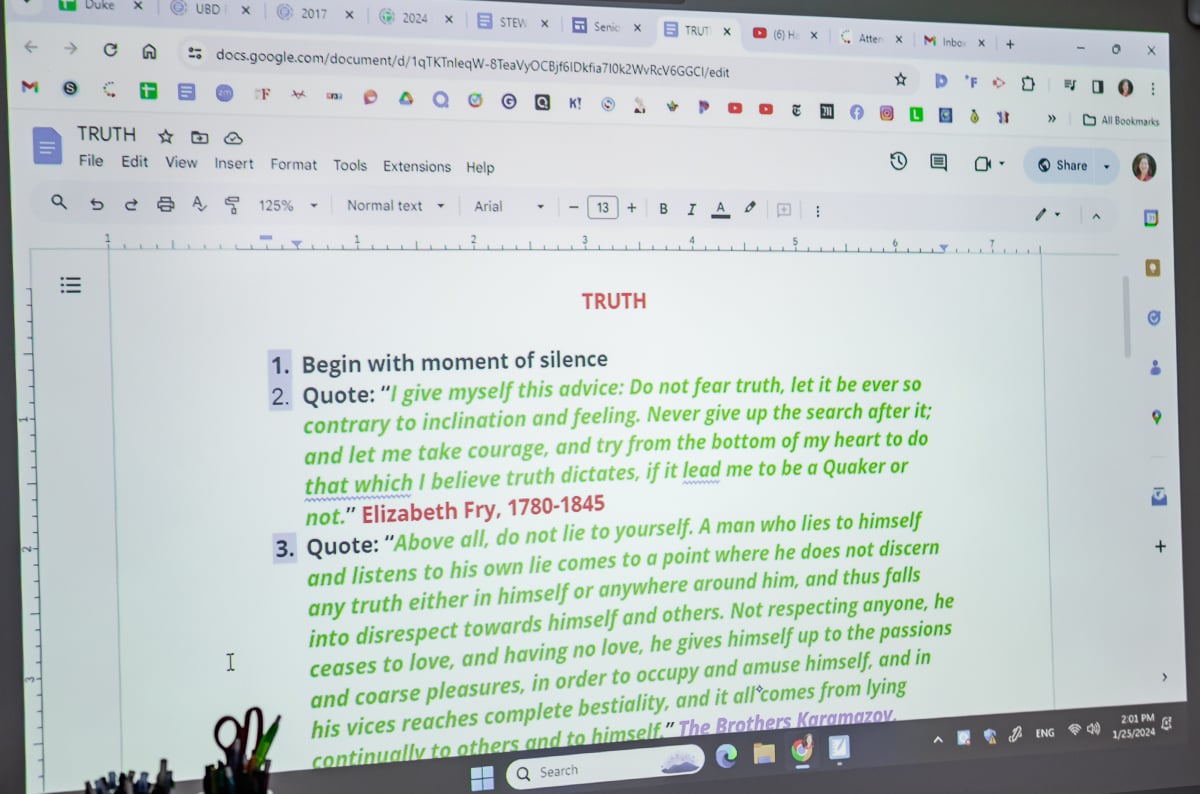
This year, Dr. Duke revamped and reimagined this required senior course, creating a vivid and engaging palette of quotations, music, movie scenes, and poetry. The unit is divided into fifteen parts that guide students through the spiritually grounding topics of wisdom, love, simplicity, joy, and more. Each section is threaded together with embedded Quaker Testimonies that are lifted up for students in ways that are both relevant and thought-provoking.
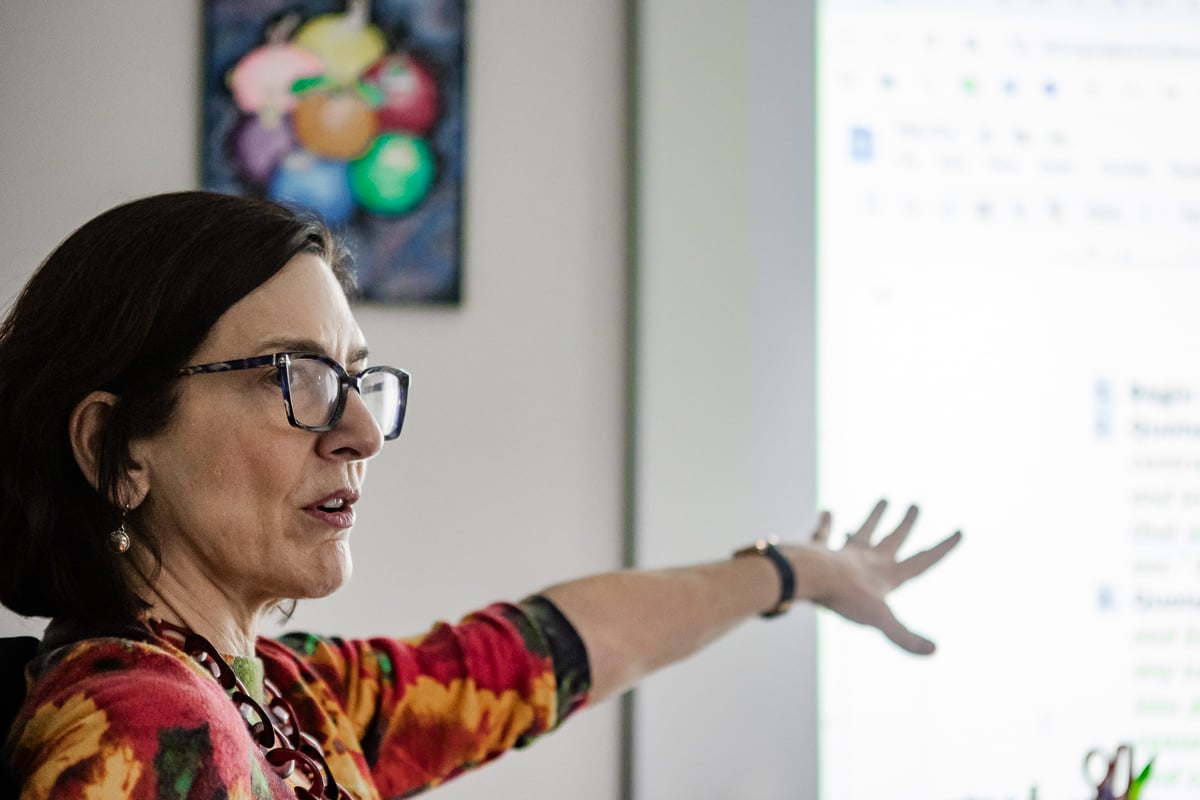
“Living as a Quaker, I have seen that there are nuances that can be missed in the simplification of religion,” said Dr. Duke who is a convinced Quaker and a member of Westbury Meeting. “This class embodies a desire to show its depth, and to show both the universal truths from any faith tradition and what is specifically Quaker,” she explained.
In this lesson, students viewed a video interview of psychologist Brené Brown, who reminds us that vulnerability is not weakness, but the greatest act of courage. “And what is necessary to be vulnerable?” asked Dr. Duke of her students. “The need to be honest,” responded one.
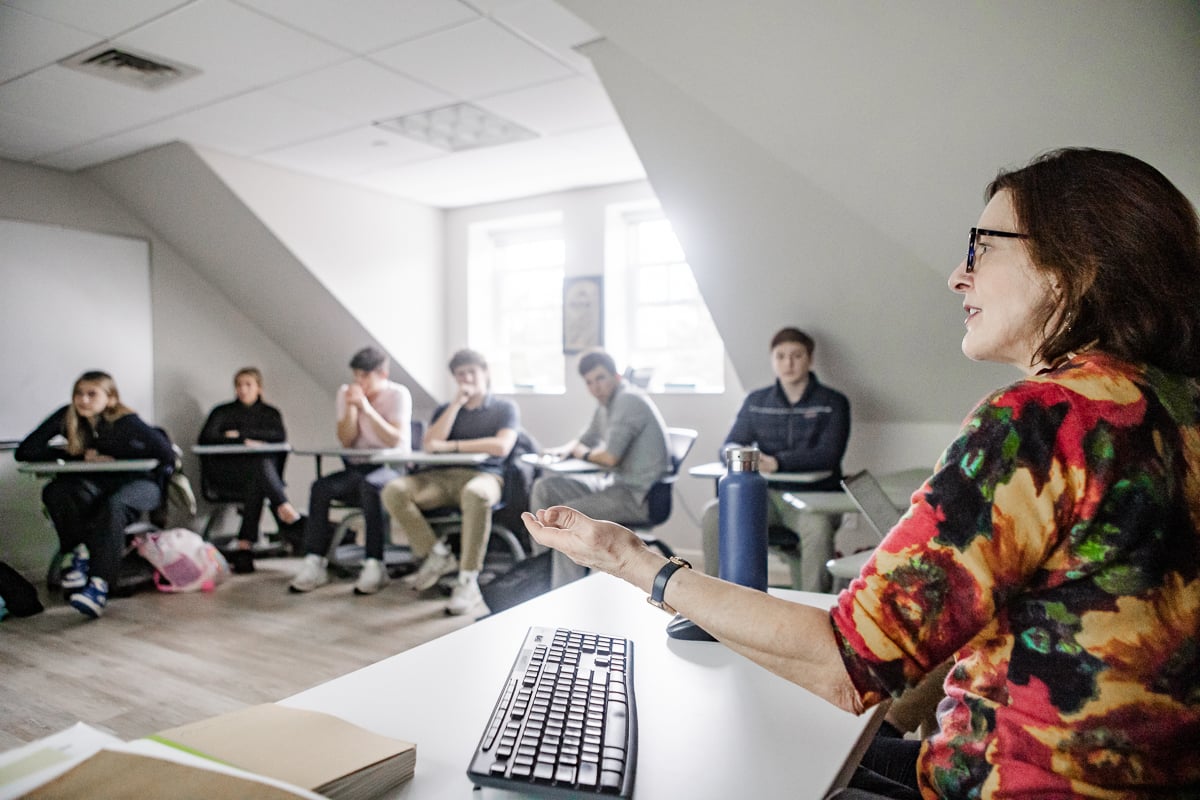
A moving scene from “The Pianist,” the true story of a German Jew trying to survive the Holocaust, demonstrated how emotional truth can be revealed. After years of hiding, a jar of pickles tempts Wladyslaw Szpilman out of hiding. The Nazi soldier finds him and asks him to play the piano. Deeply affected by Szpilman’s mournful piano playing, the SS officer lets him go. “Sometimes you can’t see the emotional truth from the outside,” shared Dr. Duke. “The music was revealing something deeper – Szpilman’s desperation.”
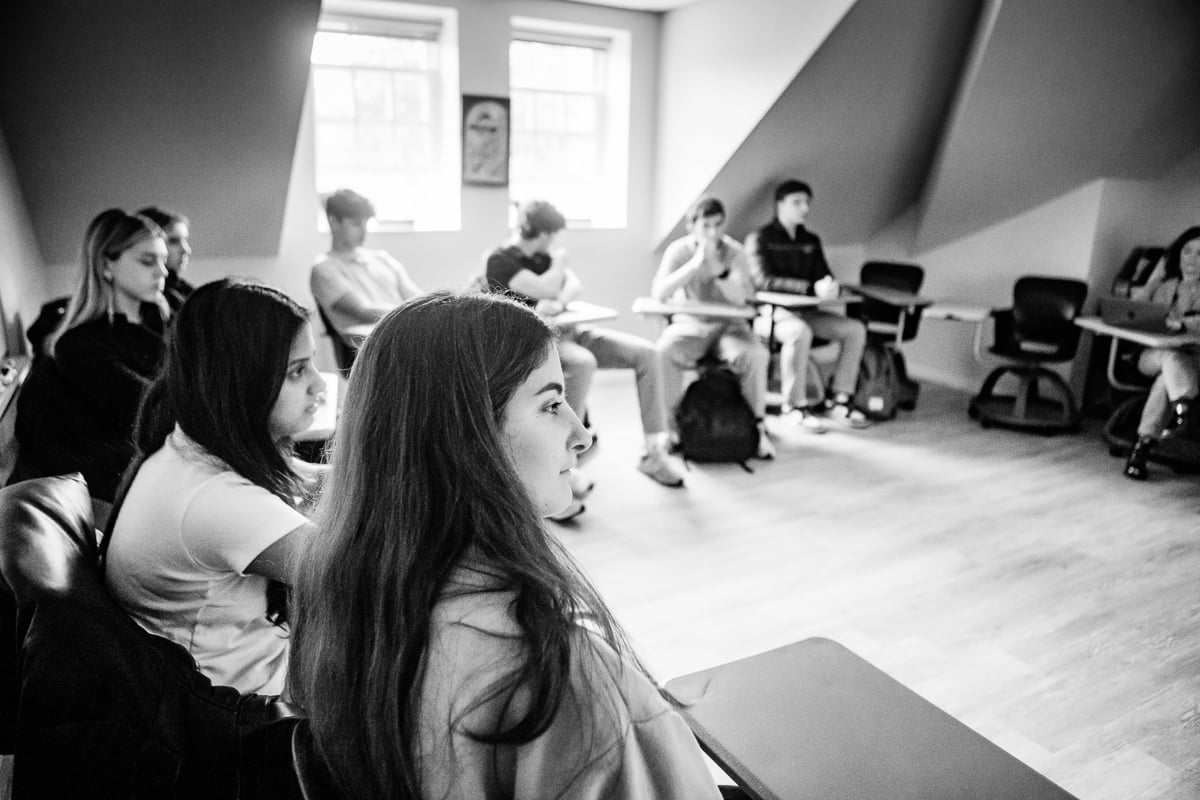
The remainder of the class moved students through additional philosophical thought – Plato’s advice to pursue the truth even if it disrupts comfortable routines, and Aristotle’s guidance to question what it is we desire, and to live life according to one’s virtues.
“Part of what is so cool is the gravitas of history,” marveled Dr. Duke. “Especially in the role that Quakers have played. We ask what are the roots of testimonies in different faith traditions, and who are our heroes?”
A semester-long course, the class culminates in a project called “What Canst Thou Say,” where students are asked to attend a Quaker meeting outside of Friends Academy in person, investigate in what ways it differs from Quaker meeting at school; take the time to meet a person on the facing bench (usually a Quaker “elder”); and take their photo together. A final reflection is due by the conclusion of the course. “Students won’t learn if they are not engaged; they’ll get turned off by something too esoteric, which is why I wanted them to feel each theme viscerally, like in ‘The Pianist’ scene,” said Dr. Duke, who regularly weaves movie scenes and music into her curriculum.
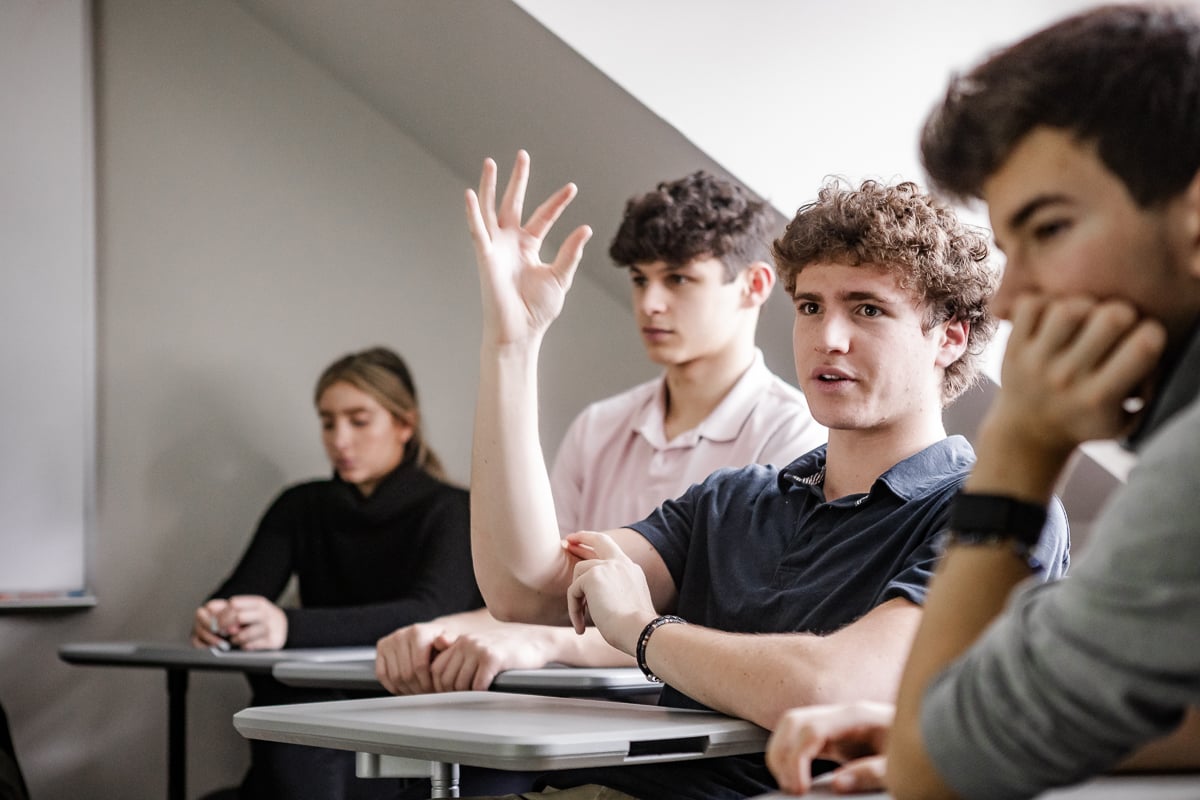
As students debate the nature of authenticity and the connection between responsibility and accountability – “You can’t be the best version of yourself without looking to other people,” commented one student; and is “Authenticity being true to yourself?,” wondered another – Dr. Duke is buoyed by the lessons she is learning from her students.
“I really want everyone to see the connections between moral, spiritual, and emotional growth. When you see how they are interconnected, you become that much closer to what Quakers call, that ‘Eternal Seed’ or the Truth,” she said. “I hope this course does make a difference in nurturing our Quaker mission. I continue to grow from my interactions with the kids. And when they grow, there is nothing more fulfilling.”
Did you enjoy this post? Here are a few more we think you'd be interested in:
Fill out the form below to receive updates on the latest and greatest within the Friends Academy community.